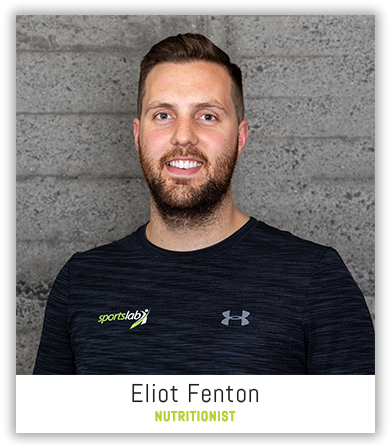New Year, New Me?
2021. The year that isn’t 2020. The year that MUST be better than the last. January rolled around and yet again, we found ourselves claiming “new year, new me”. Now that we have hit February; how is your “new me” coming along? Are we still the same person, facing the same challenges, stuck in the same revolving rut? Or are we out smashing our goals one after the other and feeling a whole lot of motivation and happiness. Or are we a weird tension of the two?
If you answered, “it’s going rubbish”, or that it is both good and bad, know that it is perfectly normal to feel unmotivated, to feel like your performance, health, relationships, or the world around you just isn’t what you would like it to be. But let us step back from focusing on every little detail, turning around and focusing on “what can I control?”. Let’s challenge the mantra of ‘new year, new me’, because in reality we are still the same person, and it’s about learning to grow and adapt to create the best ENVIRONMENT, so that we can thrive.
With our health, one thing that we have large control over is our relationship with food.
At the beginning of last year, I wrote a blog that talked about aiming for a 2020 that is sustainable in which no matter what level that you are at, you can create habits that you can afford, stick to, enjoy, and help make life as simple as possible.
I talked about three tips;
Include and incorporate a source of each food group at each meal and snack.
Supplements are not necessary to kick start you into a healthier lifestyle, spend that valuable money on the food your body deserves.
Food should be enjoyed!
This year I really want you to start thinking about the way that you view food and the relationship you have with it. The reasons why I feel this is important is because with the current influence of social media, fad diets, diet culture and misinformation, there is a constant barrage for individuals and their healthy relationship with food.
‘Good’ Foods vs ‘Bad’ Foods
I am sure we can all say that we have fallen into a habit of referring to foods as ‘good’ and ‘bad’. But food does not have attitude. I know you might be thinking that this is strange to read- a nutritionist saying there is no such thing as bad foods or good foods, but hear me out. The concept of ‘good’ and ‘bad’ foods is an idea that has been perpetuated by the food industry and its marketing team in its quest to help guide people on what to eat and buy. If we are wearing out optimistic hat, we could say that this is for health reasons. If we are wearing out pessimistic hat, we could say that this clever marketing has been for financial profit.
Instead of seeing food as simply ‘good’ or ‘bad’, we should think critically about the food we eat. Food does not have attitudes, but it does have nutrients. Nutrients are what gives our body the energy to fulfil all aspects of our bodies physiological function like our cells, organs, and muscles. If we ate only ‘good’ food, but had a very narrow range of food, we could still be in a position where we are potentially missing key nutrients in our diet, and thus not eating optimally. When we think about negative and positive food we start to allow our subconscious to make these associations and slowly over time our relationship with those foods becomes more and more negative. A classic example that gets everyone is that “oooh carbs are bad and they make you fat”. Firstly, carbohydrates are not bad. Secondly, they will not directly make you gain a large amount of weight, because the overconsumption of any foods will contribute to weight gain. We should look at a food like carbohydrates on their nutrient profile. There are simple carbs (mono or di-saccharides meaning one or two sugars like glucose, fructose, and sucrose which are generally found in honey, fruit and lollies) and complex carbs (polysaccharides meaning many sugars like starch or fibre. This is generally found in whole grains, pasta, rice oats). Both simple and complex carbs have a time and a place due to their nutrients profile. Simple carbs are more effective in an exercise capacity and help provide fast and effective energy to help with energy output and muscle glycogen recovery. Complex carbs offer a nutrient profile that generally contains fibre (nutrient important to help you poop). Complex carbs also help make us feel fuller for longer because there is more processing needed to break down the numerous bonds between saccharides, and they help lower cholesterol and aid in recovery. It is the same with other foods groups, they all have their own nutrient profile which can benefit our bodies in different ways. So let’s ditch the ‘good’ and ‘bad’ labels and focus on the nutrients on offer.
There is No Silver Bullet
There are so many fad diets and trending food challenges that even I find it hard to keep on top of them all. Many diets are not only unsustainable for the every-day lifestyle and are costly for the actual return, but a lot of the time they can negatively impact your health. There are some diets which do have clinical purpose and should be used under supervision of a clinical Dietitian. An example of this is the keto diet, or more specifically the rebranded Atkins diet, which was initially designed for children with epilepsy. The food challenges that are trending on Instagram do not fall into this category.
Before starting a trendy new diet or food challenge, ask yourself: Can I realistically afford this for the rest of my life? Does it exclude or restrict whole food groups? Is it asking me to replace food with supplements?
If you want to lead to a healthier lifestyle, it won’t come in the form of restriction of food groups, a capsule or powder. I think, deep down, most of us know this, but we hang on to hope for that silver bullet that will make weight change or improved performance happen easily. The answer, realistically, is not ‘dieting’ but instead creating a diet that is sustainable for your every-day lifestyle. The way you can achieve this is by including a variety of food groups, colours and textures in your diet, getting in contact with a registered or BSc qualified nutritionist or a registered dietitian and reflecting on your own relationship with food, to work towards long-term goals.
Overall, ‘dieting’ is often built on restriction, and can build negative relationships and attitudes toward food, body appearance and weight. But it really is about balance when it comes to food. There is a time and place for manipulating a diet to help individuals change body composition, for health and performance, but this should always be done under the guidance of a health professional to help achieve goals in a healthy and sustainable way.
It’s Not as Simple as Energy In vs Energy Out
There is one last idea I want to discuss about creating the sustainable 2021 version of ourselves and for years to come. That is energy balance. The theory is, that if we want to lose weight, our ‘energy out’ must exceed our ‘energy in’. Theoretically it makes sense, if we exercise more or eat less, over time we will decrease our weight. However, this does not consider important factors that impact our overall health and well-being. Sure, there may be a period where we see immediate weight loss, but this is often followed by a plateau, weight gain, or decreased performance. This is because our body has a physiological set point in which it wants to sit, and our body needs time to develop and adjust to any changes. Energy balance can fall into the category of ‘yo-yo dieting’ and ‘weight cycling’ where current research remains inconclusive in determining the overall impact upon an individual’s health. Research has seen a potential in it negatively impacting an individual ability to lose weight and effect distribution of adipose tissue [1].
The other risk that energy balance under incorrect guidance poses is that people severely restrict themselves to a point where they are essentially starving themselves. At the beginning it may seem fine, and yield weight loss results, however over time this reduction of energy to the body causes a disruption to physiological systems. These can lead to feeling constantly fatigued, a reduction in appetite, injury, slower recovery, poor performance and lack of concentration, to name a few [2-4]. Let’s always make sure that we are fuelling enough for our physiological systems to function in a healthy and effective state.
3 tips to take with you through the rest of 2021
In summary, here are three key points that you can apply to help towards your sustainable health journey.
Let’s ditch this idea of ‘bad’ food and ‘good’ food. When you think of food, think about what nutrients it will provide for your body. Let’s start building a better relationship with food.
Diets are generally not a sustainable long-term solution. Instead of ‘dieting’, let’s develop a healthy relationship with food. Let’s give our body’s the variety of fuel it needs in the form of different food groups, colour and textures.
Don’t restrict yourself to a point where it is detrimental to your health. Seek guidance from a health professional such as a registered or university qualified nutritionist or dietitian. Let’s remember that there is no one size fits all cookie cutter shape when it comes to nutrition, it is about focusing on your unique needs to develop long-lasting and beneficial habits, knowledge and ideologies.
Eliot Fenton is a Sports Lab nutritionist who is passionate about food as fuel and food as enjoyment. He is currently completing his Master’s in dietetics.
1. Mackie, G.M., D. Samocha-Bonet, and C.S. Tam, Does weight cycling promote obesity and metabolic risk factors? Obesity Research & Clinical Practice, 2017. 11(2): p. 131-139.
2. Mountjoy, M., et al., International Olympic Committee (IOC) Consensus Statement on Relative Energy Deficiency in Sport (RED-S): 2018 Update. International Journal of Sport Nutrition & Exercise Metabolism, 2018. 28(4): p. 316-331.
3. Loucks, A., B. Kiens, and H. Wright, Energy availability in athletes. Journal of Sports Sciences, 2011. 29: p. S7-S15.
4. Areta, J.L., H.L. Taylor, and K. Koehler, Low energy availability: history, definition and evidence of its endocrine, metabolic and physiological effects in prospective studies in females and males. European Journal of Applied Physiology, 2020: p. 1.


